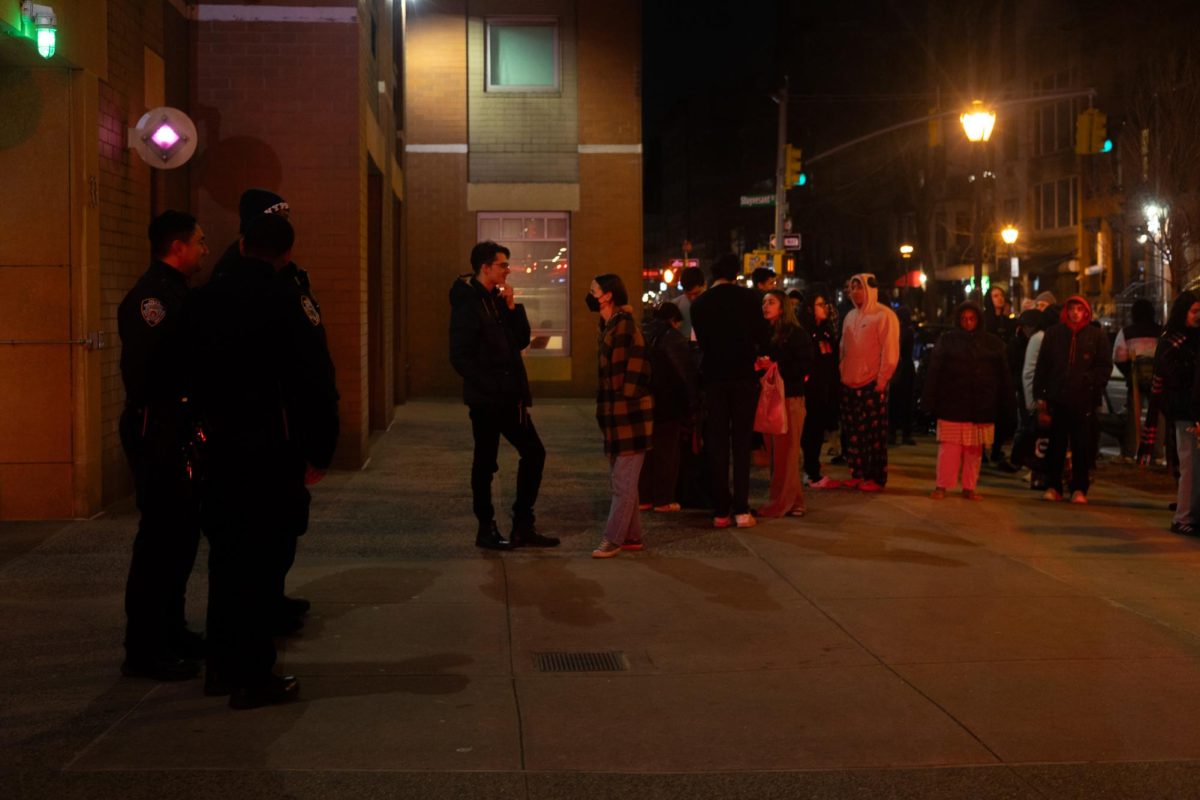Last Thursday, residents at Alumni Hall were told to evacuate the building, anxiously waiting in the cold from 11 p.m. to around 1:45 a.m. while the New York City Police Department and Fire Department inspected the residence hall. It was later revealed that the dorm was evacuated after the Department of Campus Safety received a false bomb threat targeting five different university buildings, including the residence hall. Students did not receive formal communication of the threat — let alone the reasoning for the sudden late-night evacuation — until early afternoon Friday.
In WSN’s report of the incident, NYU spokesperson John Beckman said the other four buildings targeted weren’t occupied at the time, which begs the question: Why would anyone target unoccupied university buildings? Better yet, were the threats received when those buildings were still occupied? In any case, what were the details of the false bomb threat report? These are simple questions that could have been answered — or wouldn’t have been asked — if students and faculty were informed of the threat as soon as they were evacuated, rather than notified in an email the following afternoon.
In the Friday email to Alumni residents, residence hall director Takisha Pierre informed students that “there was no danger, the threat was unfounded and the building is safe.” What good is this information if residents weren’t informed while they were waiting out in the cold for nearly three hours?
NYU has a tendency to drag its feet on emergency communications, particularly regarding specific details of the incident, following events such as on-campus shootings and dorm intrusions. Students are accustomed to delayed emergency emails for such ongoing situations and crime reports received hours or even days after a threat or emergency was identified.
If the decision to not mention the bomb threat that night was made to quell panic, then that’s not fair to students. Information needs to be conveyed as soon as possible so students can feel as safe and comfortable as they can be. Some students might not want to let decisions of personal safety be made by other people, while others might argue that the potential presence of a bomb in their dorm building is exactly the kind of emergency situation that warrants panic. Students should simply not be forced to jump to added stress and anxiety during emergencies, with the fear of not understanding what is going on.
NYU needs to rethink the efficiency and accountability of its emergency responses, and it needs to apply a level of care the next time a threat comes rearing its head. The university either needs to prioritize its communication efforts to make sure students are informed and safe at all times, or needs to make its priorities abundantly clear for the student body.
WSN’s Opinion section strives to publish ideas worth discussing. The views presented in the Opinion section are solely the views of the writer.
Contact Noah Zaldivar at [email protected].


























































































































































